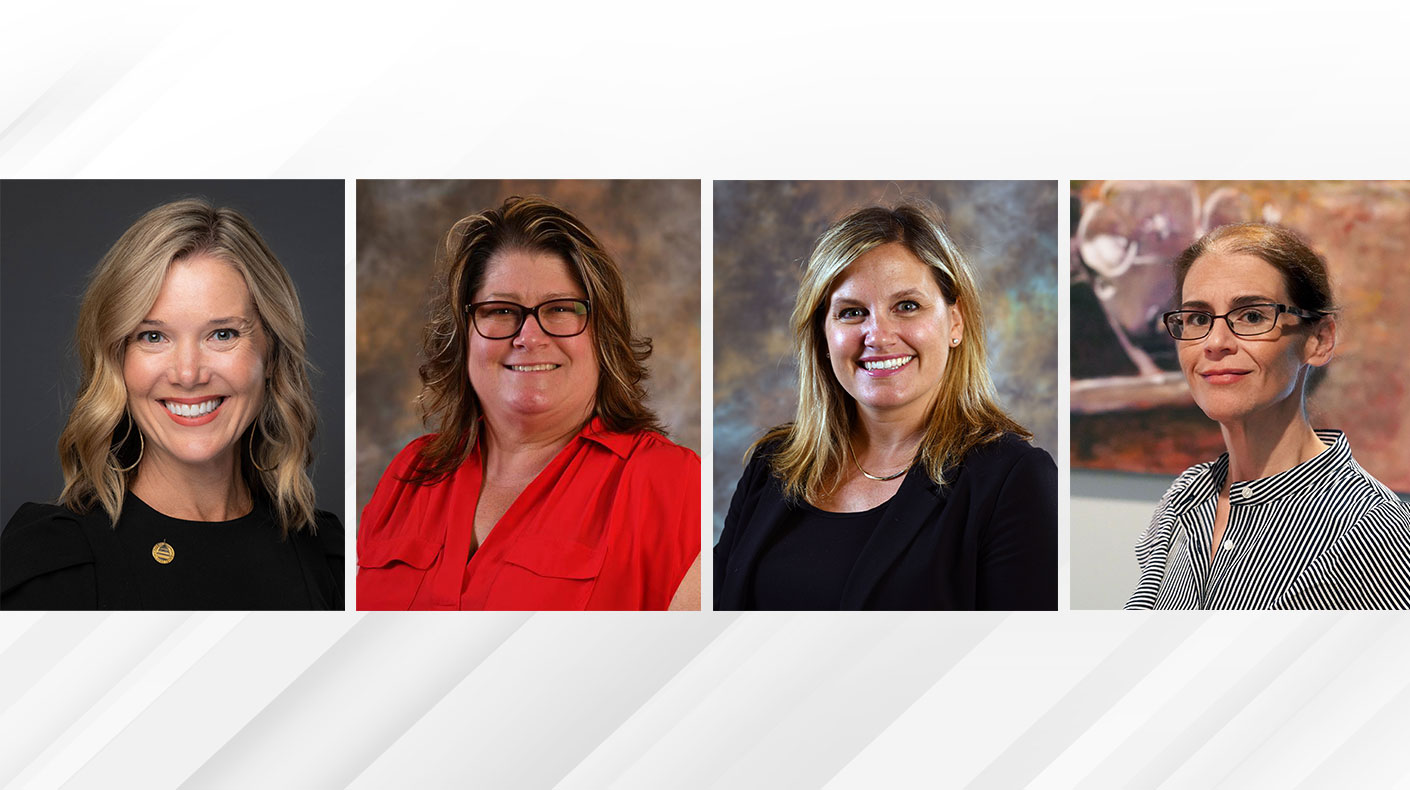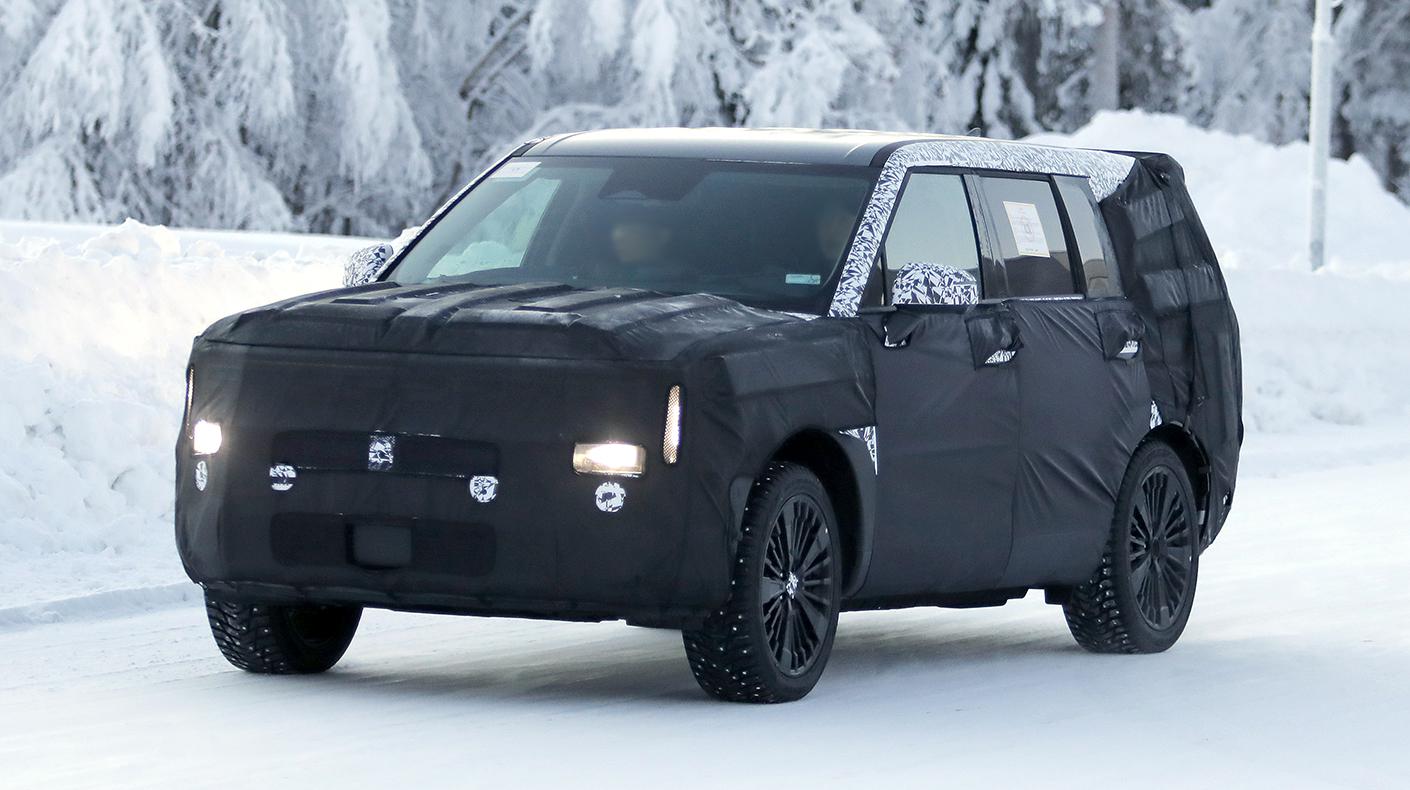By Ellen McKoy

(From left to right) Melanie White, Lana Chrisman, Melissa Scoles and Joanna Agosta Shere.
There was a time, not long ago, when the aftermarket industry was almost exclusively a man's world with few opportunities for women to break through the glass ceiling. Though challenges remain, thanks to changing perceptions, diminishing stereotypes and mentoring support, women have made significant strides.
From CEOs and small-business owners to racecar drivers, innovators and beyond, professional women have transformed the face of the aftermarket industry. As women continue to redefine what it means to be a professional woman in the specialty automotive sector, we've singled out four go-getters: Melanie White, Lana Chrisman, Melissa Scoles and Joanna Agosta Shere.
Their individual stories reflect dedication, passion and achievements as business leaders. Their journeys also share a common thread of family ties and volunteer leadership within the SEMA organization that helped pave their way to success.
Perpetuating the Family Legacy
Melanie White had no plans to join the family firm despite being the great-granddaughter of Hellwig Products' founder, Rudy Hellwig. Having graduated from college with a degree in psychology, she considered becoming a marriage and family therapist until she read an article in The Wall Street Journal.
"It was all about rapid changes in business, that businesses are constantly challenged and you have to either evolve or die. I was fascinated, I was hooked," said White. "This was what I wanted to do."
White joined the company in 2005. She got her start by cold-calling customers and ultimately rose to the position of vice president. She became the first female president and CEO in 2018. The fourth-generation company is now a certified women-owned business.
"I was never pressured to come into the company," recalled White. "There's a lot of my family invested here. It's a gift to carry on this legacy. It's also a challenge because of the pressure to do the right thing every day for my family, for Hellwig and the team."
White's involvement with SEMA began early in her career when she was introduced to the SEMA Businesswomen's Network (SBN), which had a mentoring program. She credits colleagues and former SEMA Board members Anne Johnson, then-owner of a truck-accessory business, and Luanne Brown, founder of eTool Developers, with taking her under their wing.
Over the years, White served as chair of SEMA Cares and the Truck & Off-Road Alliance (TORA) and has advocated for the industry at Washington, D.C., rallies. She was elected to the SEMA Board, where, as chair-elect, she will assume the chairmanship in July, becoming only the second woman to helm SEMA's governing body.
"I've been volunteering for 19 years," said White. "It was such a gift to have that level of mentorship. It was so important to my career. Being involved in councils, I learned about structure and how to run a meeting, leadership training and strategic planning—all things that I still apply in my business."
A proven leader, White was named SEMA Person of the Year in 2018. Last year, in a testament to her achievements as a role model, small-business champion and her community engagement, White received national recognition. She was chosen as one of 130 Women MAKE Award honorees presented by The Manufacturing Institute, an affiliate of the National Association of Manufacturers (NAM).
"It was a huge honor being on stage with all those women who represented companies in the billions. Manufacturing is not an easy job," noted White, who still faces occasional pushback from men unaccustomed to seeing a female in her position.
"As a woman, I learned early on that I have to be more knowledgeable than anyone else and twice as prepared. For NAM to use these awards to show young women that manufacturing is a viable field is incredibly important. My family has been in the industry for more than 70 years. And I'm really proud of the fact that I could represent not only Hellwig but also SEMA as an industry."
Finding Joy in Giving Back
Growing up in Southern California, while most girls were playing with dolls, Lana Chrisman was playing with tools in her family's garage. That's where her dad, legendary drag racer Jack Chrisman, established Chrisman Driveline Components after retirement from racing.
"My dad and I were extremely close. From early childhood, I grew up around the machines and learning about them," said Chrisman. While attending college, she was encouraged to come on board. To give Chrisman a leg up, her dad created California Gears in the mid-'80s.
"California Gears was my connection to the family business. It was one of the first mail-order companies in that industry segment. My dad was the original male ally. He always encouraged me, said I could do anything a man could do, and helped me build the company. I was really fortunate."
In 2006, she decided to shift gears. She joined John Force Racing as director of retail sales, where she established a warehouse distribution network and a second retail store. Six years later, Chrisman transitioned to McLeod Racing. She was promoted to vice president and played a pivotal role in the company's move to new headquarters and its acquisition of FTI Performance.
While at McLeod, Chrisman got her first taste of volunteering when Rose Kawasaki, then with Exports International, suggested she join SBN. "Rose was SBN chair at the time. She encouraged me and opened up an entirely different world, which literally changed my life," said Chrisman.
"I'd never been involved with SEMA except for attending the Show. I had spent my entire career working for small, for-profit companies. Getting involved in SBN gave me a different perspective on what SEMA has to offer as a nonprofit organization. I wanted to help make our industry stronger."
During her tenure as chair of SBN—which boasts 750-plus members—Chrisman is credited with developing the group's resource program, including "#SheIsSEMA" and other initiatives to help women navigate their career paths.
"Having a platform that gives women a voice and resources to advance their careers is very impactful," said Chrisman. "I'm so proud of SBN and that I was able to be part of that."
She has since joined SEMA's Hot Rod Industry Alliance (HRIA) Select Committee and began volunteering at the Lions Automobilia Foundation and Museum founded by the late Rick Lorenzen.
She was soon hired as executive director and continues to play a key role in preserving Southern California car culture and expanding the foundation's reach through education. A Pathways to Careers program, which includes seminars and workshops, aims to inspire high school and college students to explore career opportunities in the automotive and motorsports industries.
"We need to bring young people into our industry," said Chrisman, "and I see this as an opportunity to open doors and give back at a different level. My biggest reward comes from being in service to others. The Lions Foundation is a platform where service plays a big part in giving back. It fills my heart with joy to continue doing that."
Cultivating Community Engagement
While in high school, Melissa Scoles got her first taste of the aftermarket industry working at QA1, the company her late father, Jim Jordan, founded in 1993. She started at the bottom of the ladder in the warehouse, folding rod boxes. During her college years, she worked QA1's booth at PRI Shows while earning a degree in marketing.
"I started at QA1 to get some exposure to the industry, but it was at the PRI Show where I learned about the industry and met a lot of people. That's when I fell in love with the industry and went to work for the company full-time," said Scoles.
Although she worked in various departments—customer service, accounting, material handling, and marketing—Scoles had considered other career paths, including teaching and even law school. But while acknowledging that marketing is her "passion," Scoles left the company in 2007 to earn a graduate degree in business administration. She then worked for a software development company.
In 2011, her dad asked her to return. She started out running sales and marketing and worked her way up the ladder. She assumed the role of president and CEO of the multifaceted company in 2013.
"My husband, Travis, and I have been running it ever since. He is the COO. We're very fortunate we trust one another and work well together. I couldn't be more thrilled with the path of my career.
"I've worked in software in our industry and I'm really blessed with QA1. We do all things aftermarket, but have another side of our company that's involved in other industries—medical devices, playground equipment, agriculture—which prevents us from having blinders on," she said.
Despite juggling multiple responsibilities, Scoles has been an active volunteer leader. She has served on the SEMA Scholarship Committee and as chair of the Motorsports Parts Manufacturers Council (MPMC), where she was instrumental in helping the council produce a virtual version of its annual Media Trade Conference during the pandemic.
Last year, both QA1 and Scoles made headlines. In recognition of the company's achievements in innovation, product quality and contributions to the industry, QA1 was named SEMA Manufacturer of the Year.
Scoles was elected to the SEMA Board, continuing her commitment to give back to the industry. "It's an honor to serve on the board and to have the opportunity to tackle challenges that affect our industry and to drive positive change," she said. That spirit of engagement is an integral part of the company's culture.
"SEMA provides all kinds of opportunities to get involved and for personal and professional growth," said Scoles. Case in point: One of her team members sits on the select committee of SEMA's Future Leaders Network, while a Detroit Speed employee attended FLN's Professional Development Program.
At the local level, QA1 supports volunteering and educational initiatives. Several years ago, they received a grant to host a program for fifth graders in their school district. Known as Engineered for Speed, the program connects students with QA1 team members. It was so successful that QA1 now funds the program. The company also welcomes class tours of its facility and participates in car cruises and other activities.
"There are so many ways to give back," said Scoles. "I'm very fortunate. There's a real sense of community within our team. Everyone wants to get involved. It's very rewarding."
Taking the Reins
Steele Rubber Products has deep roots in the restoration and hot rod markets. Founded by Lynn Steele in 1958, the third-generation family-owned company is now led by Steele's granddaughter Joanna Agosta Shere.
Shere got her start working part-time while in high school. Unsure if she wanted to stay with the company, she considered becoming an attorney, but found it boring after shadowing Steele's corporate lawyer. She went off to college, earned a degree in public relations and journalism, and landed a job at American Airlines.
"I worked in the frequent flyer department. I love to travel and thought it could be fun, but I didn't like working for a large organization." She then worked in sales for a small trade organization. With her dad contemplating retirement, she saw an opportunity to make Steele Rubber her career. But it took more than being the boss' daughter to ascend to the C-suite.
Her dad, Matt Agosta, is well known throughout the industry. He helped to establish the Automotive Restoration Market Organization (ARMO), one of SEMA's original councils, has a long history as an industry advocate and is a member of the SEMA Hall of Fame.
To hear Agosta Shere tell it, "He was a little resistant, because he knew how it might reflect on him and how complicated it can be to have family members as employees. He remembers what it was like to be the second generation working with my grandfather. I was the first one of the third generation to come on board. I had to prove myself.
"I worked my way up in different departments and was put in a vice president role for two years so my dad and I could work together on a smooth transition once he retired in 2019, though he's still an owner and on our board."
She took over as president in January 2020 and was soon confronted with another challenge: pandemic-related concerns. Luckily, Steele Rubber was able to declare itself an essential business, and the company remained operational.
Anxious to follow in her dad's footsteps as a volunteer leader, she joined ARMO's Select Committee and now serves as council chair. She has found it very rewarding. "When you're working in your own organization, it's easy to be siloed within the walls. When you're volunteering within the SEMA organization, you get an industry perspective. You see the bigger picture and how what's going on affects the industry as a whole.
"There's definitely a space in this industry for women. It's more welcoming than you might think. I'm the only woman on ARMO's Select Committee and they voted for me to be chair. I really enjoy being involved and would recommend it to anyone who wants a seat at the table. It helps you make better decisions for your own organization."





